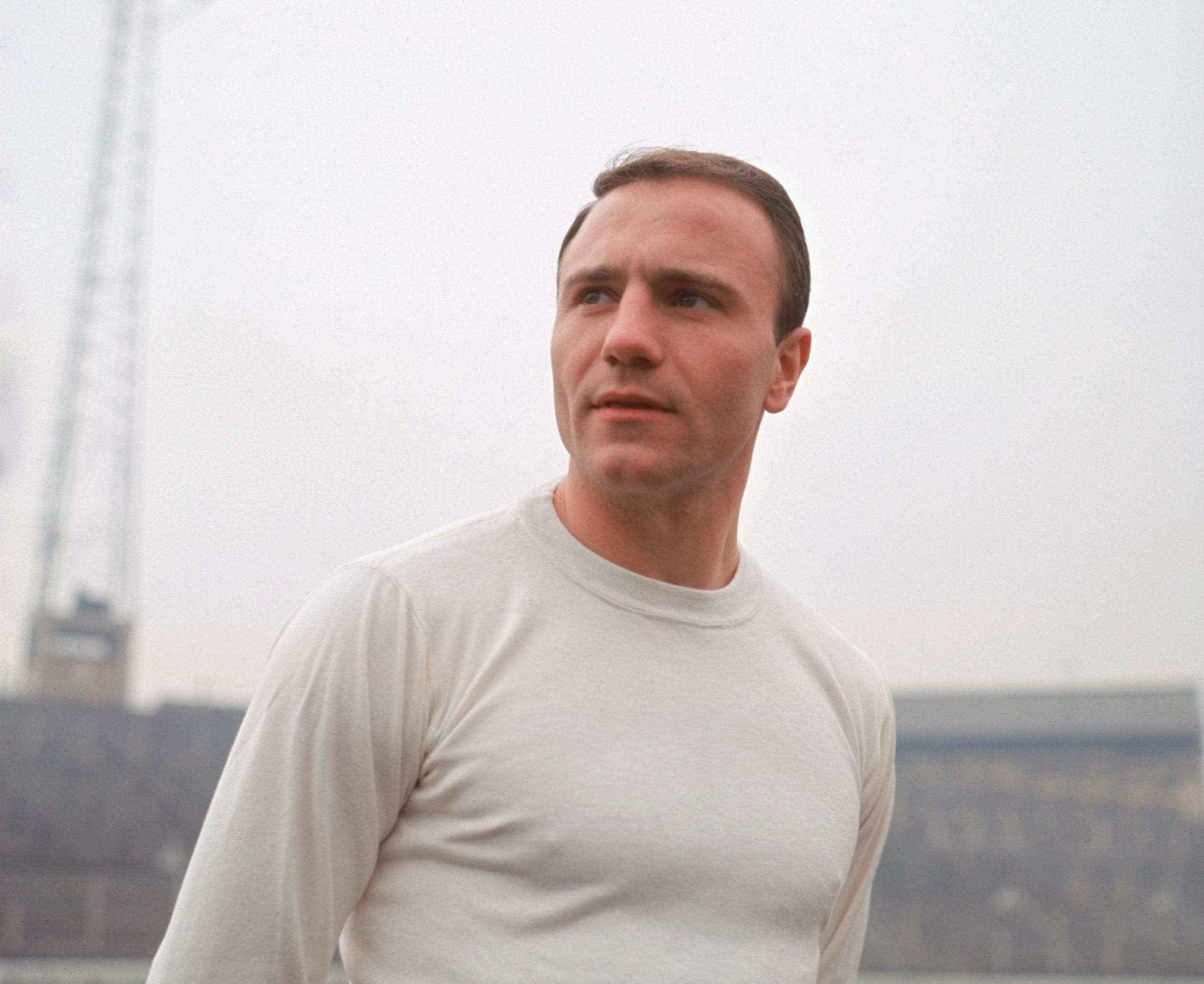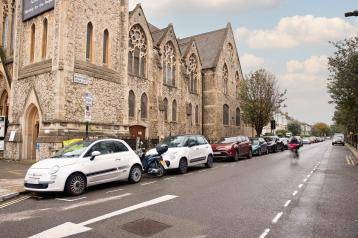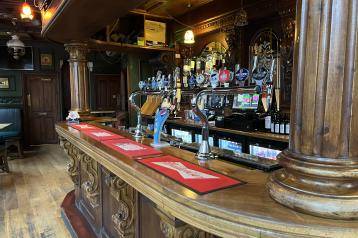
Fulham footballing legend George Cohen pictured in 1965. PICTURE: DON MORLEY | ALLSPORT | GETTY IMAGES
One of Hammersmith & Fulham's honorary freemen, the World Cup winner and Fulham footballing legend George Cohen, has died at the age of 83.
He was granted the freedom of H&F – the highest civic distinction the borough can grant – in 2016, shortly before his 77th birthday, following the unveiling of a bronze statue of the former right-back at Craven Cottage to mark the 50th anniversary of England's 1966 World Cup win.

At a ceremony in Hammersmith town hall he was given a standing ovation by councillors, officers, Fulham FC staff and members of his family. The citation encompassed his footballing achievements, his charity work and his ambassadorial role for Fulham FC, where he was a popular pre-match host, regaling fans with stories of his playing days.
"George Cohen was a Fulham boy – his down-to-earth kindliness never betraying his status as a Fulham FC legend and an England World Cup Champion," said Cllr Stephen Cowan, Leader of Hammersmith & Fulham.
"George campaigned for cancer charities and supported dementia charities. When in 2016, George was rightly given the Freedom of our Borough, he chatted before the ceremony about his humble early years: joking how as a boy when his family moved into Burne Jones House he thought his neighbours were 'posh' because they all had shoes. He movingly dedicated much of his acceptance speech to Daphne, his wife.
"George Cohen was a beloved footballing hero from a golden age. He was a lovely man. I know everyone in Hammersmith & Fulham sends our heartfelt condolences to Daphne, his family and friends. RIP George."
As well as making 459 playing appearances for Fulham – a rare example of a one-club player – George campaigned for more investigation into dementia among ex-footballers, and whether greater care needs to be taken to avoid long-term brain injury caused by repetitive heading of a ball.
Born in west London on 22 October 1939, George lived a mile from Fulham's Motspur Park training ground with wife Daphne. The couple, who had two sons, recently celebrated their 60th wedding anniversary.
It means just two members of the 1966 World Cup squad are left; Sir Geoff Hurst and Sir Bobby Charlton.
At the dedication of the statue at Craven Cottage, Fulham chairman Shahid Khan called the player "one of the great full backs of his time; beloved beyond measure at the club".
Cohen, who was made an MBE in 2000, was typically self-deprecating as the lifesize bronze, created by sculptor Douglas Jennings, was unveiled. "Are you sure it's not George Clooney?" he asked, adding that its height on a plinth was "far higher than I used to jump".
George Best, who also played for Fulham, once labelled Cohen 'the best full back I ever played against', while Sir Alf Ramsey, who managed England's 1966 World Cup-winning team, called him 'England's greatest right back'.
A Fulham fan as a boy, Cohen would climb a tree outside Craven Cottage to get a glimpse of the Fulham idols of his youth such as Bedford Jezzard and Arthur Stevens.
Veteran football writer Brian Glanville called George Cohen "a useful player who tackled well and had great pace," adding: "He used to overlap a lot, and he kept Jimmy Armfield out of that 1966 England team. He was a tough guy, and was a very good boxer in his youth."





